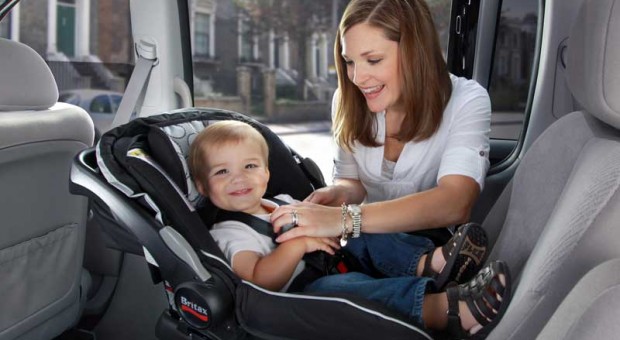
The US Academy of Pediatrics tolds that all babies born before 37 weeks undergo an assessment called the Infant Car Seat Challenge ICSC prior to discharge from the hospital.
This test determines if the baby is able to safely ride in the semi-reclined position of a car seat. And a new study shows that not all babies are being appropriately screened.
Because premature babies can have weaker airways than full-term infants, they are more susceptible to complications, such as interruption of breathing, slowed breathing, and decreased levels of oxygen in the blood. Being in a semi-reclined position, rather than laying flat, can increase the occurrence of these episodes. Passing the ICSC is important for determining if a traditional infant car seat is an appropriate restraint for these premature babies, or if they would be safer traveling in a car bed—a special restraint where they can be transported laying down.
During the car-seat challenge, the baby is secured into his car seat, which is reclined to the appropriate angle for travel, and nurses will monitor the respiration and oxygen levels of the baby for 90 to 120 minutes. If the baby does not have any interrupted or slowed breathing episodes, or decreased oxygenation, then the infant passes the test. Should the baby fail, the test is repeated in a few days.
You might expect that babies born more prematurely are more susceptible to failing this test, and babies born closer to full term are less likely to have these difficulties. In fact, many hospitals, in order to preserve time and resources, only conduct the ICSC on infants that are more premature. However, a new study released today in the journal Pediatrics suggests the opposite.
Of 1,133 infants that underwent the ICSC in the study, those that failed (4.3 percent) were more likely to be born closer to 37 weeks, have a higher birth weight, and a younger postnatal age (age since birth) at the time of testing. This could be because babies born closer to 37 weeks have matured for less time outside their mother’s body than those born earlier. Additionally, extremely premature infants often have long hospitalizations in the neonatal intensive care unit (NICU), where as infants born closer to 37 weeks will have shorter hospital stays before discharge.
Therefore, babies born more prematurely are actually chronologically older at the time of testing than those born closer to their due date. This study suggests that if a hospital limits ICSC testing to exclude infants born between 34 and 37 weeks, many cases of ICSC failure will be missed, allowing babies to be discharged from the hospital in a traditional car seat, when that might not be the appropriate choice for them.
If you are an expectant parent, and your baby is born pre-term, be prepared to advocate for your baby and request the ICSC, even if they are close to 37 weeks and if the hospital doesn’t routinely perform the test on late pre-term babies. And, remember that babies that pass the ICSC, and even babies born at full term, could still have breathing problems while in a car seat.
Limit the baby’s time in the car seat. When traveling, it’s a good idea to have an adult riding in the back seat with the baby so they can observe their breathing, and awaken or reposition the child, if needed. And, as always, make sure the car seat you’ve chosen is appropriate for your baby and that it is installed correctly.
Source, get more car news!




















